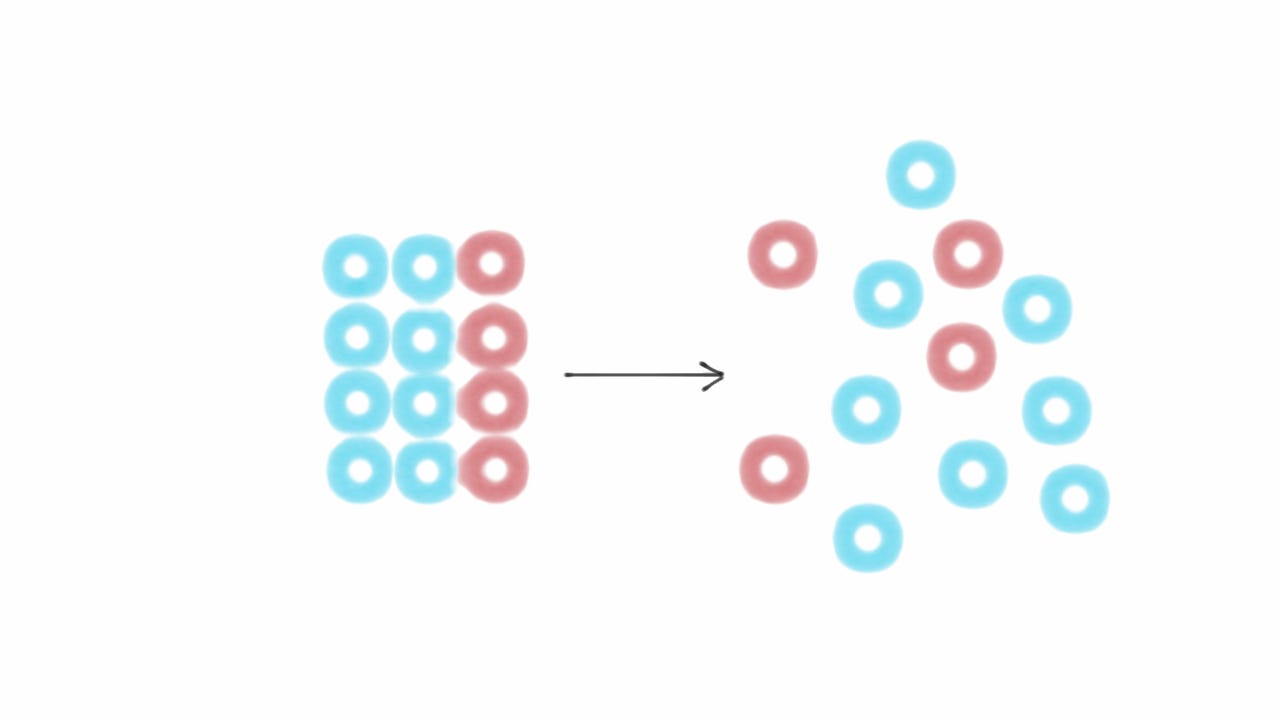Entropy
That's been the repeating thought in my head this past week, I think due primarily to the amount of work I've been doing and, to a lesser degree, the responsibilities associated with having your own apartment.
For work, my boss said it best when RE asset management is simply just "a grind" - there really are a never ending list of tasks that keep you busy, and the list seems to grow at a faster pace than you can muster because you’re essentially acting as a business owner multiplied by the number of communities you control (right now it’s 12, or over 3,000 units). At that point, there's a tradeoff between quality and speed, and depending on the importance of the project, you have to make a call on the gradient of quality or speed. Prioritization is also a factor - which project is the most important to work on? A short cut to this question would be asking your boss what to prioritize, but sometimes you have to make a call between what you think should be prioritized vs. what your boss says should be prioritized. There are a few good articles that I've read in the past that I've been meaning to regurgitate again that deal with prioritization, time, and how to choose.
Paul Graham advocates for "relentlessly pruning bullshit" in Life is Short and argues, that while bullshit in life is inevitably forced onto you (because of the things like errands, things you need to do, your job, etc.), continually look backwards and state "Life is too short for ____". In addition, something he tries to avoid is bullshit that you inevitably choose, i.e. choosing a toxic customer, a toxic work environment, deciding to debate with someone online. (There's also a really powerful side note about the flow state, where sure, you are being productive and performing your best, but time eventually ends up passing by so fast that you miss the small things that happen)
Ava has a lovely article about maintenance in on maintaining attention, which is a nicer word than "grind". She sees many facets of her adult life drenched in constant upkeep and maintenance - whether it's just cleaning up the room (physical tasks), exercise (physical tasks), or writing a book (mental tasks). She does things the way I do things, aka short spurts of extreme productivity followed by relatively long periods of rest. She notes a Sisyphean quality to it all - "if I don't bike, I'll become a worse biker" or "if I don't write, I won't finish the book". Just to maintain your current state, you keep moving. To advance further, you move more: increase the rhythm, expend more willpower, and keep pushing. With this description, for any sort of thing you do, and for any thing that you want to learn, both practice and improvement take on a physical quality. Ava touches on the balance between western philosophy (doing) and eastern philosophy (being):
"In order to live a good life we have to learn how to reconcile the two. To believe we don't need anything from the material world to feel joy—to perceive the essential luminousness of everything around us, which continues with no effort on our part—and then still to choose to attend, to maintain, to force our way upstream."
On love:
"I think all the time about how love is fundamentally an act of maintenance: I know you love me because you choose me again and again, because I choose to attend to you out of all the people in world."
Self-Renewal
The Road to Self-Renewal is a piece by the founder of McKinsey that details his thoughts on why some people end up wallowing in life whereas others continuously evolve. What it boils down into is, according to him, an active mindset to keep learning more and more about yourself as life's challenges and circumstances change.
"Someone said that “Life is the art of drawing without an eraser.” And above all don’t imagine that the story is over. Life has a lot of chapters."
And he's right, there is no point in life where you just have everything figured out. Sure, maybe the frontal lobe is developed by 25, life throws new challenges at you constantly. The key is to always be learning.
“Meaning is not something you stumble across, like the answer to a riddle or the prize in a treasure hunt. Meaning is something you build into your life. You build it out of your own past, out of your affections and loyalties, out of the experience of humankind as it is passed on to you, out of your own talent and understanding, out of the things you believe in, out of the things and people you love, out of the values for which you are willing to sacrifice something.
The ingredients are there. You are the only one who can put them together into that unique pattern that will be your life. Let it be a life that has dignity and meaning for you. If it does, then the particular balance of success or failure is of less account.”




Hi Michael - really enjoyed your thoughts on entropy and let's say, avoiding equilibrium (pchem pun). I definitely align with your thoughts on renewal and always having an open ear to learn in all environments. Though, due to this open ear and taking my hobbies/career seriously to always improve, I think I've lost the meaning or purpose of relaxation. I've developed the mentality of: I could always be doing something to further 'insert topic.' How do you justify relaxation to yourself or take your time off things of the sort?